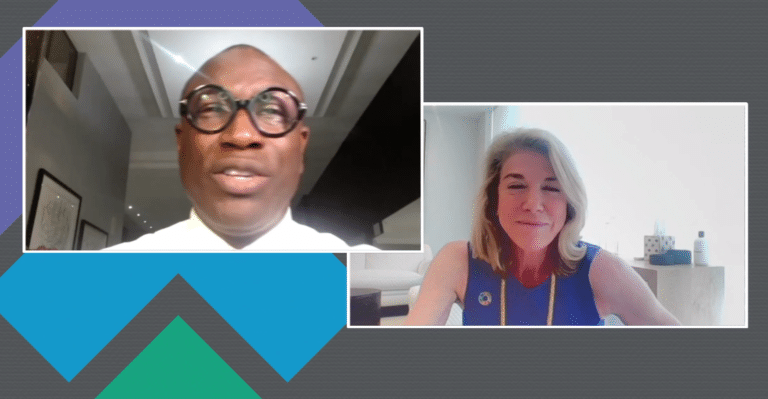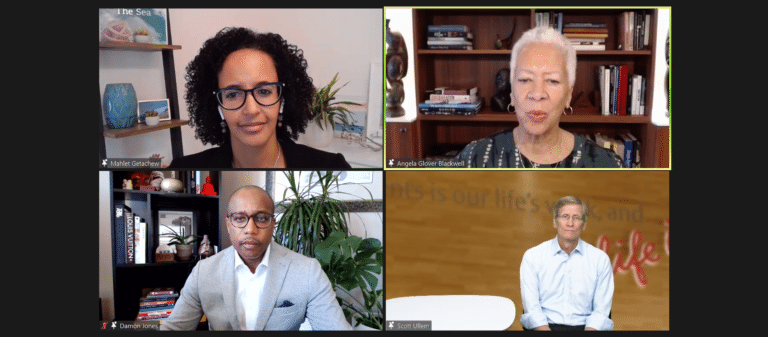The Rock Center for Corporate Governance at Stanford Law School and the Coalition co-hosted a conversation on the Framework for Inclusive Capitalism: A New Compact Among Business, Government, and American Workers. A distinguished group of speakers explored the issues and challenges facing boards and companies that are seeking to design or implement stakeholder engagement initiatives. The agenda included the following panels.
Corporate ESG: Talk versus Action
Many companies have moved beyond the debate over whether to take into account the interests of stakeholders other than shareholders, and are grappling with the practical challenges of effectively implementing Environmental, Social, and Governance (ESG) – oriented reforms. What concrete steps are companies actually taking to advance their ESG agendas, and what obstacles do they face? How are companies weighing and prioritizing the potentially competing interests of different stakeholder groups? How are companies evaluating the practical and policy limitations of corporate reform as a means to improve social and environmental outcomes? In which areas is action by governments essential to achieve improved social and environmental outcomes, and in which areas are corporations able to partner with governments to achieve these outcomes? Join a prominent panel of speakers on the front lines of stakeholder-oriented capitalism for a discussion of the potential and limitations of corporate ESG-oriented reform efforts.
Speakers: Curtis Milhaupt, William F. Baxter-Visa International Professor of Law, Stanford Law School; Sunya Norman, Senior Director, Global Impact, Salesforce
Workforce Policies in the Age of Stakeholder Governance
Many corporations have embraced the call for stakeholder-oriented governance with its concomitant focus on all stakeholders of the corporation, including shareholders, employees, customers, suppliers, and communities. How will corporations translate this initiative into corporate policies and practices that impact America’s workforce? Worker productivity has become divorced from worker pay over the past few decades, with worker productivity rising exponentially and worker pay largely stagnating. Economic inequality, whether measured through the gaps in income or wealth between richer and poorer households, continues to widen. In addition, the rise of a “gig” economy has eroded traditional economic relationships between workers, businesses, and clients and led to the hiring of more independent contractors and freelancers instead of full-time employees. Workers typically don’t have a role in decision-making that affects them and the companies they work for. In an effort to amplify their voices, some tech workers are waging collective action campaigns and embracing unions
Speakers: William B. Gould IV, Charles A. Beardsley Professor of Law (Emeritus), Stanford Law School, Former Chairman of the National Labor Relations Board; Genevieve Taft-Vazquez, Global Director, The Coca-Cola Company
Building the “S” in an ESG Framework
Companies hoping to report on their “S” or social performance face a high hurdle. Social metrics are primarily concerned with the company’s own or its suppliers’ treatment of employees, and the company’s impact on the communities in which it operates. These types of social impacts, risks, and opportunities may be difficult and costly to track, measure and compare across industries.
How can companies achieve high-quality reporting on social impacts? What improvements must be made to the processes for promulgating and auditing this data, as well as to the regulatory enforcement landscape, in order to produce accurate, objective, and verifiable social metrics? How should companies, investors, and other stakeholders deal with social impacts that cannot be accurately measured? How does certification fit into this discussion? Join a distinguished panel of speakers to learn practical tips for building the infrastructure needed to produce high-quality social metrics.
Speakers: Colleen Honigsberg, Associate Professor of Law, Stanford Law School; Avedis Seferian, President & CEO, Worldwide Responsible Accredited Production (WRAP); and Loren Kaye, President, California Foundation for Commerce and Education


